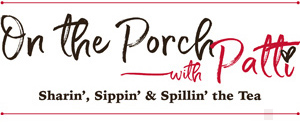Posted on Oct 2, 2022 in
FOCUS ON THE CURE

 Healthy lifestyle choices are linked to a lower risk of some cancers and other health conditions such as heart disease, diabetes and osteoporosis.
Healthy lifestyle choices are linked to a lower risk of some cancers and other health conditions such as heart disease, diabetes and osteoporosis.
Although not all the behaviors listed below are linked to a lower risk of breast cancer, they are good for overall health.
Everyone should aim to:
• Be physically active (get regular exercise).
• Achieve and maintain a healthy weight. (People with breast cancer who are overweight or obese should limit high-calorie foods and beverages and increase physical activity to help with weight loss.)
• Eat at least 2 1/2-3 cups of vegetables and 2 cups of fruit every day. Eat a variety of vegetables and fruits. Include dark green, red and orange vegetables, as well as legumes, such as beans, lentils, peas and soy foods.
• Choose 100 percent whole grain foods, such as 100 percent whole grain breads and cereals, brown rice, millet and quinoa.
• Eat “good” fats (polyunsaturated and monounsaturated fats). These are found in foods such as olive and canola oil, nuts and natural nut butters, avocados and olives.
• Limit or avoid red meat and processed meat, such as beef, bacon and sausage. Choose chicken, fish or beans more often.
• Limit or avoid sugar-sweetened beverages. Choose water or unsweetened beverages more often.
• Limit or avoid highly processed foods and refined grain products, such as fast food, ready-to-heat foods, snack foods and candy.
• Avoid alcohol. For those who choose to drink alcohol, limit to less than 1 drink a day for women and fewer than 2 drinks a day for men.
• Quit smoking (or never start smoking).
Adapted from the American Cancer Society’s Diet and Physical Activity Guidelines for Cancer Prevention and the U.S. Surgeon General’s Report on Smoking [30,335,373].
Being physically active, achieving and maintaining a healthy weight, limiting alcohol and to a lesser degree, eating fruits and vegetables and not smoking are linked to a lower risk of breast cancer. Other guidelines are good for your overall health and may be linked to a lower risk of other types of cancer.
Organic Foods
• Research shows organic foods are no more nutritious or better for you than foods farmed by conventional methods.
• Some people prefer to eat organic foods. However, people who eat organic meat, dairy, fruits and vegetables don’t appear to have a lower risk of breast cancer than people who don’t eat organic foods.
Organic Fruits and Vegetables
• Organic plants are grown without the use of conventional pesticides. Conventional fruits and vegetables may have low levels of pesticide residue.
• According to the American Cancer Society, the benefits of eating fresh fruits and vegetables outweigh any health risks linked with pesticide residue.
• Fruits and vegetables (both organic and conventional) are part of a healthy diet. Buying fresh (or frozen) conventional produce and thoroughly washing and rinsing before eating is always a good practice.
It’s Never too Late to Adopt a Healthy Lifestyle
• Everyone can benefit from a healthy lifestyle.
• Being active, eating a balanced diet and making healthy lifestyle choices can be physically and mentally rewarding at any point in life.
Breast Cancer Screening
Getting regular screening tests (and treatment, if diagnosed) lowers the risk of dying from breast cancer. Screening tests can find breast cancer at an early stage, when the chances for survival are highest.
Learn more about breast cancer screening at https://www.komen.org/breast-cancer/screening/.



 <
<






 Healthy lifestyle choices are linked to a lower risk of some cancers and other health conditions such as heart disease, diabetes and osteoporosis.
Healthy lifestyle choices are linked to a lower risk of some cancers and other health conditions such as heart disease, diabetes and osteoporosis.